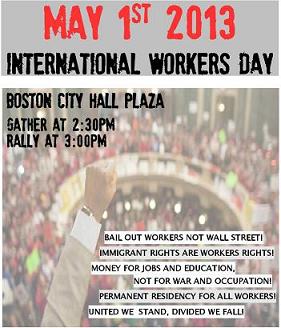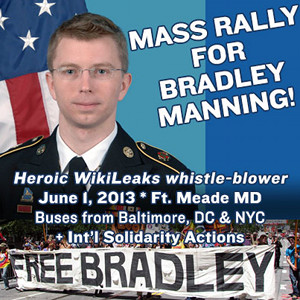ON THE WORKERS PARTY SLOGAN
COMMENTARY
FOR A WORKERS PARTY THAT FIGHTS FOR A WORKERS GOVERNMENT
In a sense the question of a workers party in America is for now a question posed to revolutionaries and other radical intellectuals. Why? Given the one-sided nature of the class struggle in America it has for now a propaganda thrust. This is a slogan that the organized trade union movement, the natural nucleus for such a formation, has not embraced. Yes, an occasional dissident trade union bureaucrat will throw the slogan out as threat to break from the Democrats if they do not do better by working people but I take that as being merely for public consumption. That same dissident is much too busy raising money and providing foot soldiers for Democrats to even take it seriously. Or, my favorite response when I have put the question to them, is to wistfully put it in the great by and by. We, on the other hand, take it seriously. However, in the interest of clarity it is not out of place to discuss what we mean by the slogan and offer a prognosis based on the timely of the creation of that formation. As always a prognosis is just that- an educated guess about the probable direction of the class struggle. Below are a few comments in aid of that discussion.
* In the best of all political worlds we would not be talking about the slogan for a workers party. Again, why? In the early history of the Marxist movement, especially of the Russian Social Democratic movement, Marxists saw themselves as THE workers party and they recruited workers, intellectuals and others on that basis directly to the party based for the most party on the full socialist program. And it worked. Our task as propagandists who are on the margins of the class struggle is to provide an important vehicle to break workers from liberalism. In America that means the Democratic Party for the most part. The workers party slogan directs the focus today toward the need to break from bourgeois parties.
*It is interesting to note that a various points in American socialist history communists did not raise this slogan. The early American Communist Party saw itself as a small mass workers party and, although it made many mistakes on the way, recruited directly to the party. In the period when Trotsky and his American followers who ultimately formed the Socialist Workers Party were struggling to create a revolutionary party they sometimes raised the slogan and sometimes did not. When they did not it was in periods of increased class struggle like the great unionization movement of the 1930’s when it was possible to recruit directly to the party. The way I look at is that the workers party slogan is a transitional one connected with the struggle for a workers government. Let us put it this way it would be very, very nice if the class struggle heated up enough for us to recruit directly to revolutionary workers party. But we have to be ready for other possibilities.
*I will look into my crystal ball and project, given the American political realities, that a workers party will most likely be formed in a pre-revolutionary situation. A pre-revolutionary situation is one where the government in power cannot rule in the old normal way and the working classes will no longer put up with the old regime. Workers will be looking for answers and leadership. That is a tall order. That is why we have to be there. This prognosis precludes any thought of a long drawn out workers party development analogous to, let us say, the British Labor Party. And that is the point. Our conception of a workers party is basically not a parliamentary one although we will fight the parliamentary struggle, if necessary, that is for sure. I would offer the Bolshevik Party in Russia in the 1917 revolution as one scenario. There the situation of war, physical hunger and land hunger was so critical that the Bolsheviks were recruiting like mad even though at the beginning of World War I they had been a small outcast organization that barely existed in Russia or in exile, for that matter. They had a history of struggle to be sure and were known to the advanced workers, especially in St. Petersburg but the point is they grew rapidly because they had a handle on the situation and acted on that understanding.
*One of the most frustrating things that an American follower of Leon Trotsky has to account for is the pervasive tendency for ‘progressive’ politics in America to take a popular front form. A popular front is an amalgam of various classes centered on a minimal program and mainly a vehicle to push the Democratic Party to the ‘left’(or have it do something). This, for the most part, during the last century has been a conscious policy from social democrats to Stalinists. It takes different forms in different periods –one of the earliest forms was the farmer-labor party in the 1920’s. James Cannon has some interesting comments on how hard the young American Communist Party was, after coming up from underground, pursued this policy and almost shipwrecked the party by creating a two-class party. Needless to say the appropriate form of political action with other class forces is the united front. But virtually nobody wants to play that way. Sadly, until we do will be in our current predicament.
*Finally, a word on the workers party and the struggle for power. Separately the workers party slogan is just another garden variety reformist slogan that that above-mentioned dissident trade union bureaucrat can use for protective covering. The program of the workers party must lead inevitably to the struggle for state power if it is to mean anything at all. That is hard medicine but if as I have speculated above a workers party will be formed in a pre-revolutionary situation then we better be struggling for power. Pre-revolutionary and revolutionary situation, as we are painfully aware, are too far and few between to accept anything less. Build a workers party that fights for workers government.





